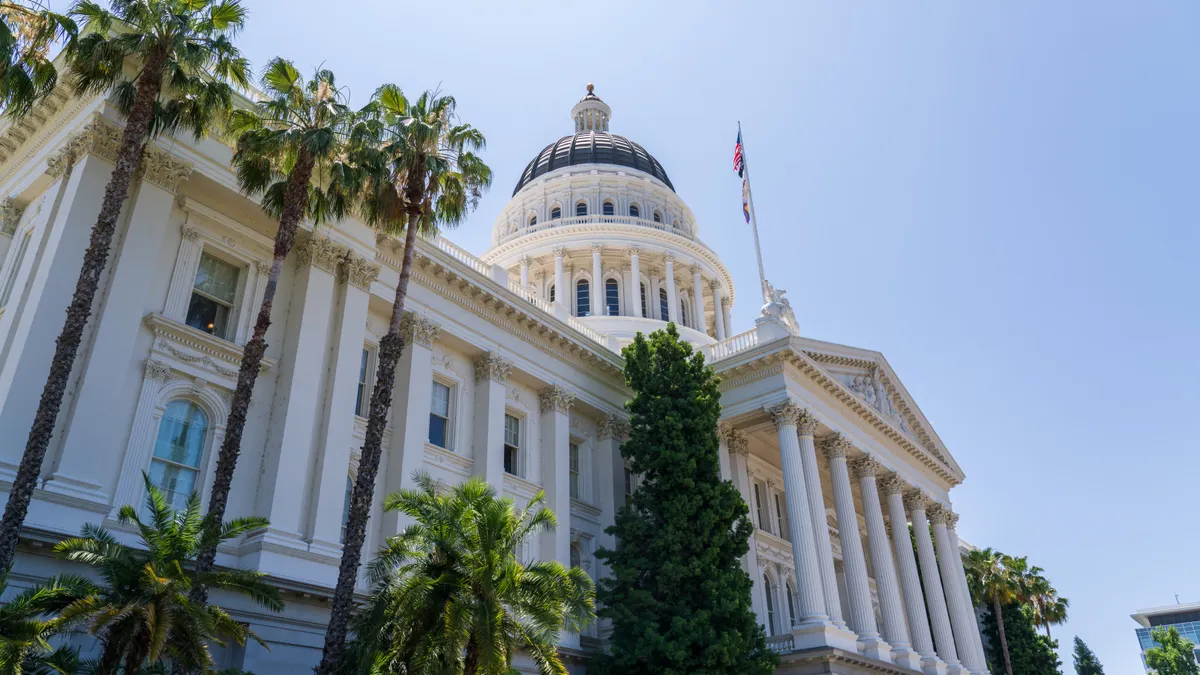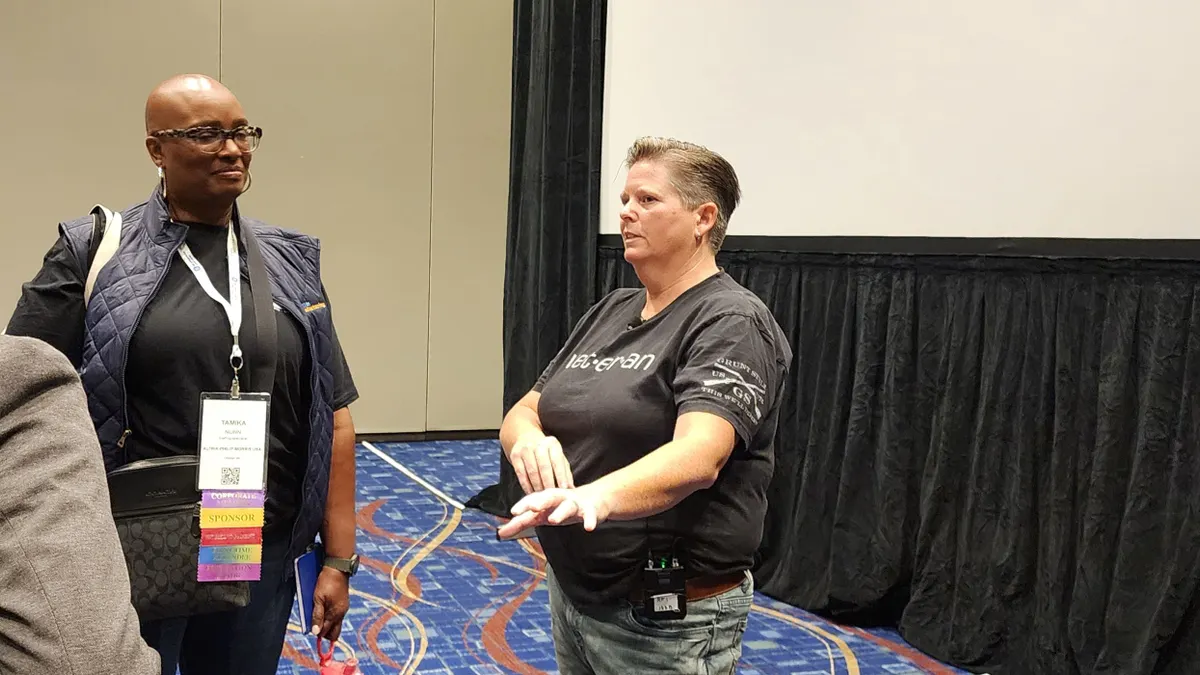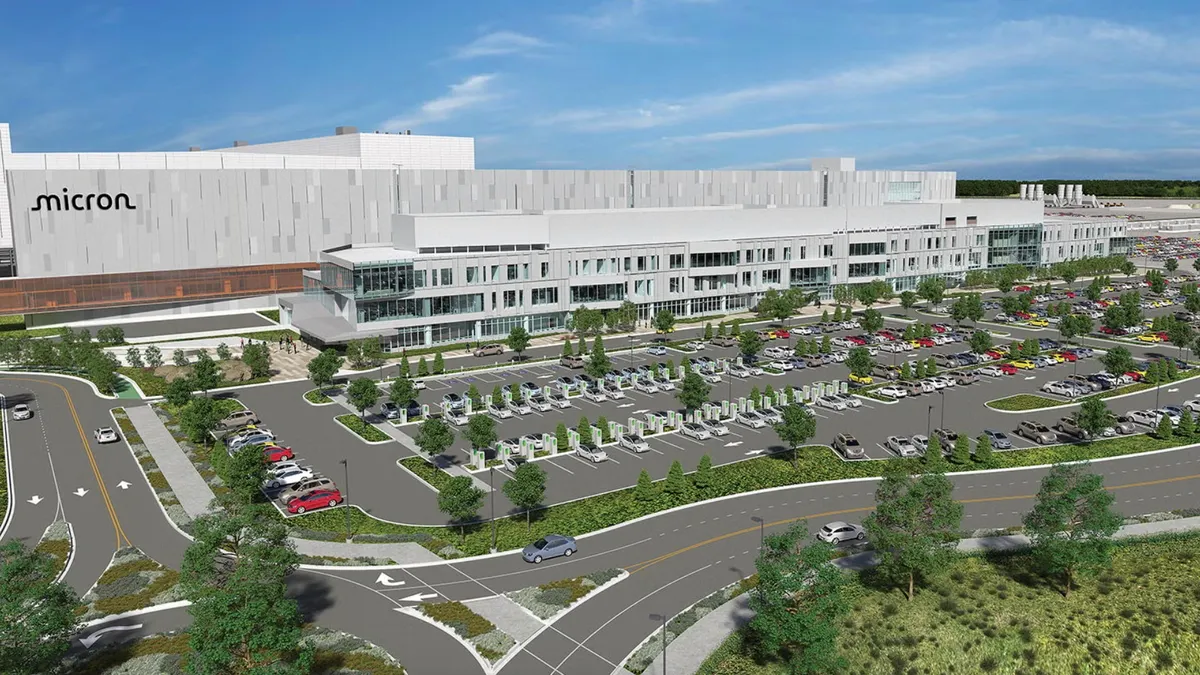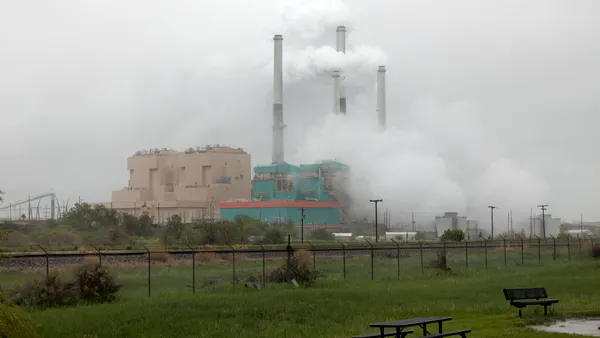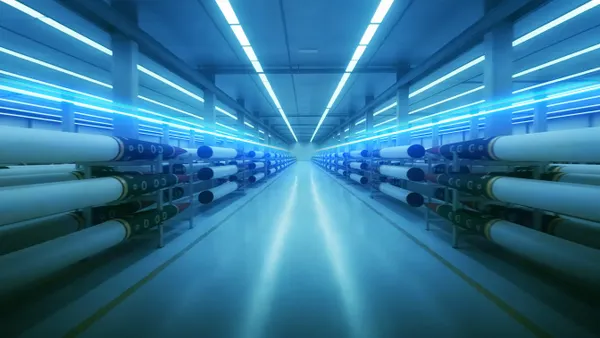UPDATE: Oct. 8, 2025: Gov. Gavin Newsom signed AB 1280 into law this week.
Dive Brief:
- Sept. 11: The California Legislature on Wednesday overwhelmingly passed a bill that would provide financing for manufacturers looking to adopt thermal energy storage systems and heat pumps for their operations.
- AB 1280, introduced by Democratic Assembly member Robert Garcia, would expand the types of decarbonization projects considered eligible for financial incentives under programs like the California Energy Commission’s Industrial Decarbonization and Improvement of Grid Operations program.
- The state bill would also set labor and community benefit requirements before projects are approved for financing. Gov. Gavin Newsom has until mid-October to sign it into law.
Dive Insight:
California’s INDIGO program, created in 2022, provides incentives for industrial projects that benefit the electrical grid, reduce emissions and improve air quality, according to its website. Earlier this year, Sierra Nevada Cheese received a $5.5 million loan from the program to install an anaerobic digester, linear generator and other equipment to lower emissions from its cheese plant.
The bill, which passed the Senate unanimously on Sept. 9, would make thermal energy storage technology eligible for three state programs: the Climate Catalyst Revolving Loan program run by the California Infrastructure and Economic Development Bank, as well as the CEC’s Long Duration Energy Storage and INDIGO programs. It is receiving strong political support after federal incentives targeting carbon emissions were cut or repealed earlier this year.
In California, manufacturers recently lost more than $500 million in federal funding earmarked for decarbonization projects, said Teresa Cheng, California Director at Industrious Labs, a climate advocacy group.
“California really has an opportunity to invest in this sector,” Cheng said. “To not only cut industrial pollution [and] lower energy costs, but to make sure we keep manufacturing jobs here in the state.”
The bill also passed the Assembly floor 71-1 this week. The one dissenting vote came from Republican Assembly member Carl DeMaio. Cheng and other supporters, including Amy’s Kitchen, the Natural Resources Defense Council and Sierra Nevada Brewing, said the projects will slash greenhouse gas emissions and improve air quality, while keeping electricity costs affordable for businesses and residents.
“It’s an example of how we can use climate policy to not only cut health harming pollution that’s resulting in expensive hospital bills and asthma attacks, early deaths, but also creating good jobs and helping to maintain and invest in our manufacturing base,” Cheng said.
California has one of the largest manufacturing economies, employing 1.3 million people, or about 7% of the state’s workforce in 2023, according to the Governor’s Office of Business and Economic Development. While it’s considered a climate bill, Cheng said it’s also an economic investment bill meant to offset project costs and help retain companies so they can do business in a “sustainable, efficient and non-polluting way.”
The Western Electrical Contractors Association opposed the bill, urging Garcia to remove the project labor Agreement provisions, arguing they are discriminatory and increase the cost of construction.
The state’s business and economic development agency reported one-time, stand-up costs ranging from approximately $1.5 million to $3 million associated with the bill, as well as ongoing costs ranging from $429,000 to $1.03 million.


